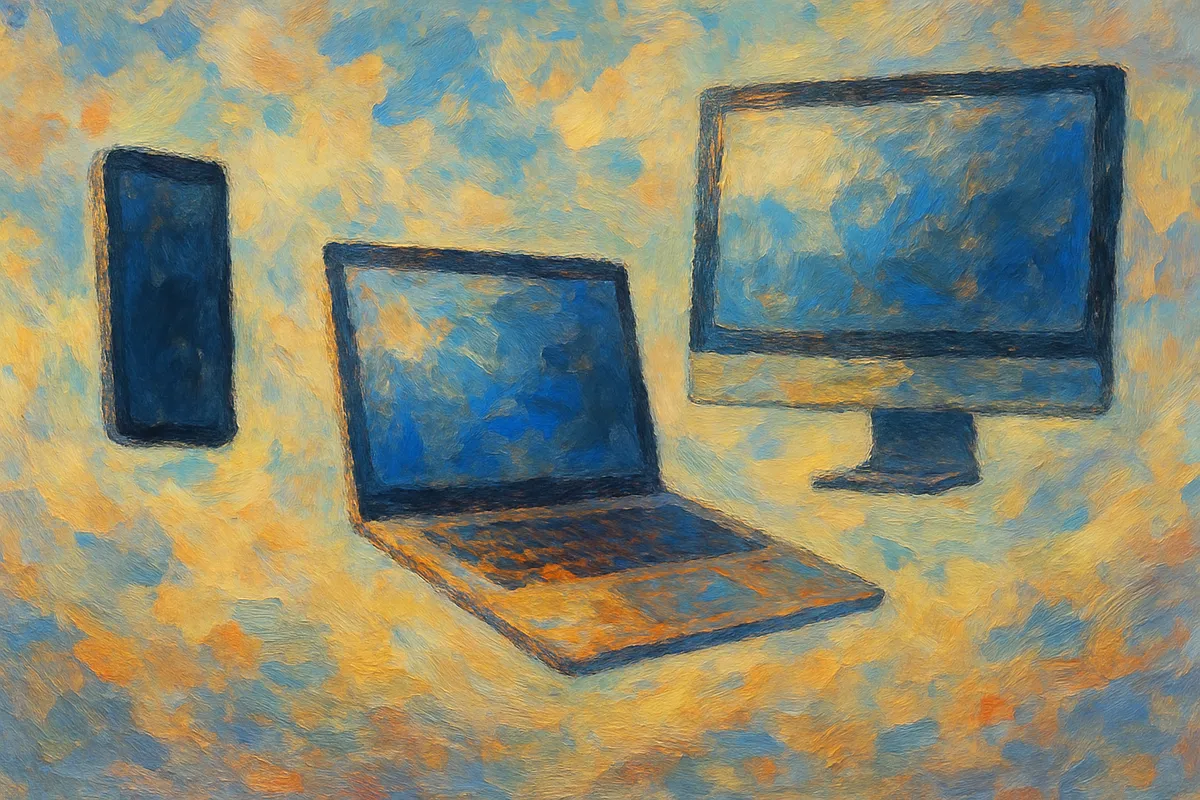The Form Factor Method

It's all about form factor baby.
I've tried out a lot of different methods for curbing phone use over the last few years. One thing that has become abundantly clear is that at end of the day your smart phone has the potential to become a problem... and you probably need it. As the dad to a toddler and creative professional I couldn't get by with just a dumb phone. Well let me rephrase that, I could get by with just a dumb phone, but the friction and inconveniences quickly started to outweigh the benefits. My son's daycare has an app where they update us throughout the day and post important notifications. Sometimes I need to take a work video meeting on the go. Having access to all the tools a smart phone gives you is, in my opinion, an invaluable part of modern tech. But this infinite swiss army knife can also be a portal to depression, existential dread, and inordinate amounts of wasted time that lines the pockets of billionaire assholes. So I've been trying to find a balance between completely opting out and getting sucked back in. I'm calling my newest approach the "Form Factor Method".
With the Form Factor Method we embrace that different form factors of tech need to be treated and used differently. A post or article that leads to doom scrolling on your phone may be a useful tool on your laptop. The same content that sucks you into a rabbit hole on your phone becomes a focused work session on a laptop - it's all about the device's design and your relationship to it. The more we can let computers be computers the more we can unplug that eerie and nagging feeling of constant connectivity for the sake of it. The practical applications may look different for everyone. In fact I'd highly encourage you to take the core of this method and heavily adapt it to what works for you. Speaking from experience trying to force yourself into specificities of someone else's productivity or self improvement method just leads to burn out and giving up. Alright disclaimers out of the way let's dive in.
1) Your Phone is not an Entertainment Device
This is what I predict to be the most difficult change to make for most people. It definitely is for me. I grew up alongside the evolution of the smart phone and not watching my first love, Youtube, on my phone has been a hard boundary to set. Because this is such a difficult boundary to set I think it emphasizes why it's so important. Because of the way apps, and now more so even our phones themselves, are engineered to keep our attention as long as possible making your phone entertainment free is a must. For me this looks like no socials, no streaming, and for the love of God Seth no Youtube! The browser is always there if you need to access something in a pinch.
2) Home Mode Activated
Once you are home for the evening put your phone on the charger, turn the ringer on, and leave it there. I've found keeping your phone in the kitchen (pretty sure I lifted this from Cal Newport) is a really great option. Again it's there if you need it, but it doesn't have to be strapped to your hip and in your hand every minute of the day. Your brain will thank you. This is also when having a laptop, even just a simple chromebook, comes in handy. The form factor of a laptop or desktop puts you into a different mode of use. Could you doom scroll at your desk? Sure. But I'm willing to bet you're way less likely to get lost in the algorithm, and hell you might even get some work done or learn something. The small amounts of friction caused by using traditional computers instead of the magic rectangle really help build healthier habits and rewire your relationship with the internet and tech.
3) TV Time
When our son was born I was researching screen time recommendations quite a bit. The data is still emerging but one thing that seemed to be repeated by most sources was, communal watching on a big screen is always better. Instead of watching a youtube video on your phone while your significant other watches tv on a tablet while scrolling on their phone, throw a show, movie, youtube video on the big screen and watch together. In my experience not having your phone with you while watching something drastically increases your enjoyment of it, and the community time is good for everyone. If you're single you could even lean into using technology in a positive way and have a watch party online with your friends via discord or a similar service.
At the end of the day this method will look different for everyone. Right now a typical daily flow for me is putting my phone on the charger in the kitchen by 6pm-ish, and switching over to a laptop if I need to do anything with a computer. There are a lot of optimizations you can make with your phone to make the experience better, the most important being notifications are your enemy, but those are probably best explored in another article. The biggest win you can have when taking the Form Factor Method approach is having your phone on your person less. You aren't completely unplugging, but you are creating a healthy relationship with the internet and tech. When you feel that itch to scroll you can fill that time with a different form factor i.e. a laptop, or you can read, draw, learn an instrument, hell you can go on a walk. The key is remembering that the device shapes the behavior, so choose your device intentionally. That intentionality can grow and reshape your relationship to tech.
